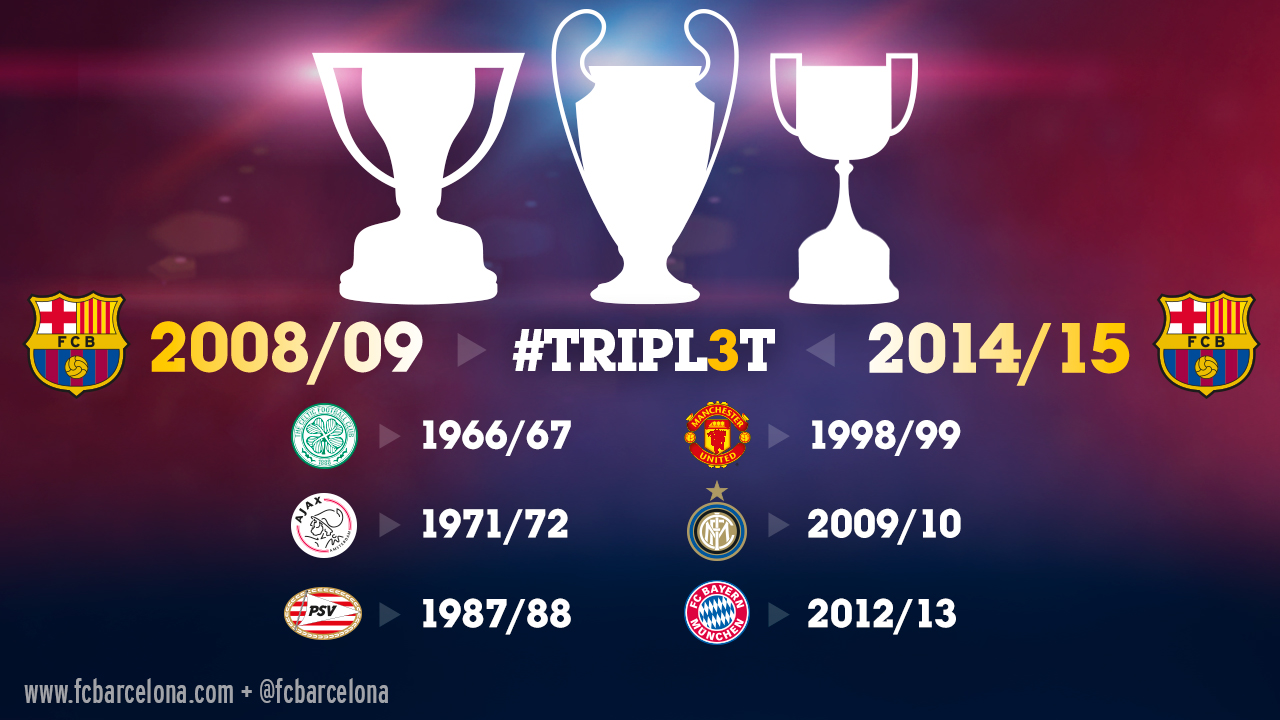There have been plenty of incredible teams and incredible seasons in world football. FC Barcelona has dominated 2009 and has perhaps achieved the greatest footballing year in the history of international football.
The most convincing argument to place Barcelona on top is their record. They have participated in six competitions and have won them all. This fact, in itself, is an incredible achievement but not the only facts to consider.
FCB are known for playing beautiful football with many short passes, amazing skills, and deadly finishing. In 2009 they did not always display the beauty, but won with heart in ugly games.
A perfect example of this the UCL tie with Chelsea. They went to Stamford Bridge tied 0-0 with a history of struggles with English competition. They went down early to an incredible strike from Essien but fought back with their heart and soul and were rewarded by a late equalizer from Iniesta, perhaps the greatest goal of his young career.
The final against Manchester United was no easy win. Ronaldo had some good early chances that the Barca defense dealt with to keep the scoreline even. The quality of Eto'o seeped through the thinnest of cracks and put Barca up. Leo Messi put the finishing touches on a masterful Champion's League campaign.
In previous years I would have counted Barca down and out after the 80th minute against Chelsea with no reprise goal. However, Barcelona played with their hearts on their sleeves and proved to the world that beautiful football deserves to triumph in any setting.
FCB also won the Spanish league title beating out Real Madrid. The 6-2 thumping in the Bernabeau was the best game that I ever remember watching Barcelona play, in any competition. They proved their worth and showed on the world stage that they meant business and cruised to the top of league and never looked back down at Madrid.
The European Super Cup was no easy game and Barcelona once again played with heart even though their beautiful game looked more like an ugly duckling throughout the first 90 minutes. They stayed true to their form and eventually it payed dividends with a beautiful game from Pedro to secure yet another trophy.
The Spanish Super Cup and the Spanish Cup were two more trophies that Barcelona earned. They pressed their style and the beautiful game rose to the top on several occasions. They showed that their dominance was just not in the league.
Finally, the Club World Cup rose as the last mountain Barca had yet to climb. Not only was it the final possible trophy for Barca, it was one that previous great teams had never won.
Barca went down early in both games, but never shied away from the style that got them to the top in previous tournaments. The final match proved Barca's worth when in the final five minutes of a choppy game that broke up Barca's flow, Pedro netted the equaliser. In extra time, the best player in the world solidified his spot with a brilliantly controlled goal of his chest. FCB made an incredible comeback to earn the final trophy that had eluded the dozens of trophy cases back home in Barcelona.
Perhaps the most undervalued aspect of 2009 was the development of La Masia, the Barcelona youth system. It gave them Xavi, Iniesta, Pedro, Messi, Puyol, Valdes and even the coach, Pep Guardiola. Other teams have good youth systems but there are none that keep players with the team like La Masia does.
2009 was a magical year not just for Barcelona, but for world football. Fans in all corners of the world had a chance to watch football be played in its purest form.
The 2009 Barcelona team showed courage, heart, skill and a resilient attitude to win so many trophies in so short a time. 2009 was clearly the year of FC Barcelona and the greatest year for one team in the history of world football.








